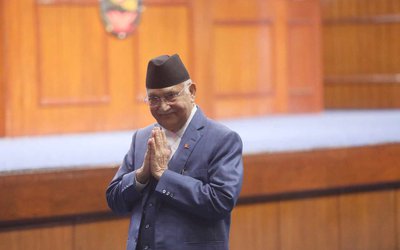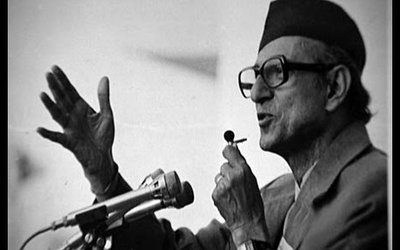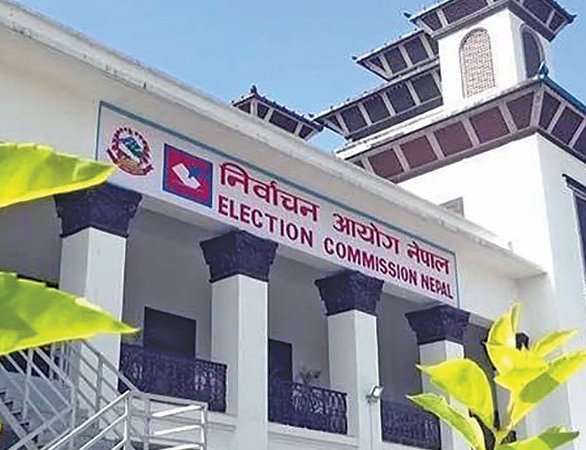
Along with the recommendations of the date of the election for Federal and Provincial Legislature, the Elections Commission also demands a budget of Rs.10 billion to conclude the process.
The demand of the election commission for the budget may be justifiable given its recent experiences of holding local elections. However, civil society leaders, who welcome its recommendation for holding the elections, criticized the demand for Rs.10 billion.
Former chief elections commissioner Bhoj Raj Pokharel issued a statement criticizing the commission for demanding such a big amount of money to hold the elections. He questioned,” why does EC need such big amount of money? Where will it spend it and how?
Pokharel argued that this kind of demand for big public money by the commission will erode its moral and credibility to press political parties to limit their election spending. “To make elections cheaper and fair, EC must start the move by holding the elections at a nominal cost. “Why do they need new vehicles at this critical time?” asked Pokharel.
This is not the first time EC is landed in controversy. During the last local elections, EC had withdrawn its demand for 500 new vehicles to increase mobility.
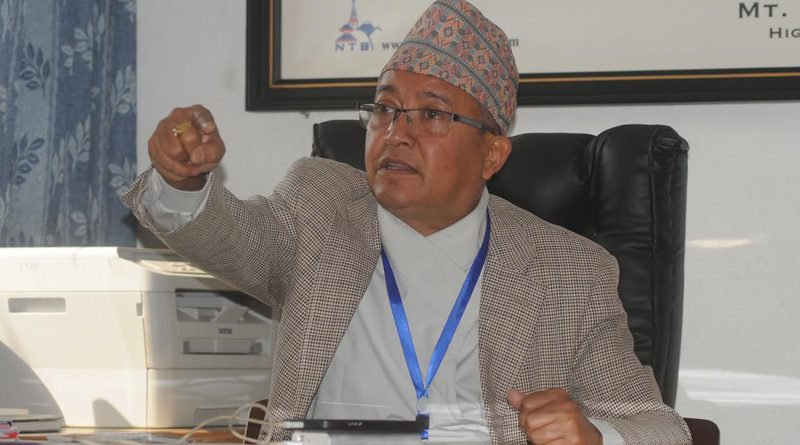
This kind of controversy has been regular. Five years ago, chief election commissioner Ayodhi Prasad Yadav landed in a big controversy over the decision of importing new vehicles for the elections commission.
At a time when the country does not have National Elections Policy, the decisions are often taken on haphazardly and randomly. This creates controversy about the intention of the Election Commission.
Published recently by Niti Foundation- a Nepali not-for-profit public interest organization that accompanies locally-led policy reform, a Niti Note, prepared by imminent constitutional lawyer Professor Dr. Bipin Adhikari discusses different aspects of the election process.
Among others, the areas for policy reforms and policy reform and policy implementation are highly relevant in the present context. Despite holding several elections in the last seven decades, Nepal is yet to have an elections policy.
As there do not have an election policy, Election Commission has been facing several problems at the matter related to pre-election preparations and post-election scenarios.
“Nepal does not have a national election policy. Without this, a holistic approach to elections management is not possible,” said Dr. Adhikari. A national election policy will be a major instrument to strengthen democracy. ”This will enable the ECN to focus on elections during the election year and, according to national policy, spend the rest of the time on democratic consolidation. This includes focusing on issues such as the protection of electoral integrity, continuous evaluation of electoral standards, working with interest group organizations — non-governmental organizations, media, and law enforcement agencies — for strengthening electoral democracy, working with relevant public or private institutions for the propagation of values that help improve the socio-economic equality, developing a sense of tolerance and respect for each other, creating a sense of accountability, and actively participating in political affairs.”
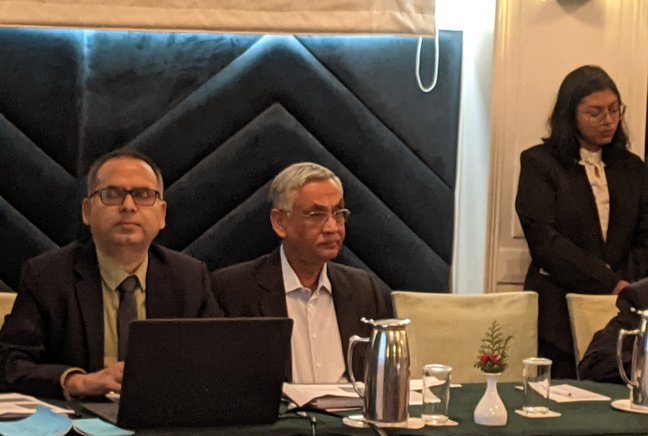
“Election management bodies, such as the ECN, are important actors for the promotion and protection of democracy in any democratic nation. It is, therefore, critical to consider the ways in which the ECN can promote and further strengthen democracy beyond the exercise of a free and fair electoral process,” writes Dr. Adhikari.
“In any democracy, elections are the key to a competitive, plural political system. By exercising adult suffrage, the sovereign people of a democratic country establish their government and institutionalize democratic and accountable governance. It is for this reason that elections are led and conducted in every democratic country by (usually independent) electoral bodies or other such institutions that may accomplish this job independent of the influence of the incumbent government.”
Election Task
The realization of constitutional responsibility by any constitutional body is a key to making democracy functional and successful and Nepal is no exception. In recent days, Election Commission has been doing its best to fulfill its constitutional duties through various processes registering new voters, changing addresses and launching programs for voter education.
Although it is still over four months away, the Election Commission has recommended a date of November 18 for the parliamentary and provincial elections. The commission said that it can hold the elections in a single phase. At the meeting of the EC's officials with Prime Minister Sher Bahadur Deuba at Prime Minister's residence Baluwatar on July 5, the date for the elections has been recommended.
According to the commissioner at the EC Dr. Janaki Kumari Tuladhar, EC has recommended November 18 Friday for the elections of the House of Representatives (HoR) and provincial assembly in a single phase.
The commission recommendations ended speculations and rumors over the date of the election and gives political parties opportunities to prepare for the forthcoming elections.
“As a constitutional body created to hold the free and fair elections periodically to ensure the right to vote of Nepali citizens and choose the representatives of their choice to rule, it is our main duty to recommend the date,” said Election Commissioner Ishwori Poudel. “With the consultations and interactions with various stakeholders, we come to realize that earlier making recommendations prevent the rumors and enhance the credibility of the process.
Areas for Policy Reform and Policy Implementation
The election is a complex and lengthy process and the recommendation of the date for the election is one of them. Voter registration, transfers, voter ID distribution, printing ballot and so many others. However, there need policy reform and policy implementation to strengthen the commission and make the elections free and fair.
“The necessity of independent EMBs for democratic consolidation has been established through the argument in Chapter Two. The argument further makes the case that EMBs should not be limited to performing mere technical roles, but that they should also participate in substantive aspects of democratic consolidation. The analysis has explored the ECN’s case and how the Constitution and the electoral legislative framework provide normative orientation for the Commission to work in the broader arena of democracy protection and promotion. The legal and normative space for the ECN to perform its technical and normative role vis-à-vis electoral administration is a prerequisite but not a sufficient condition for the Commission to effectively execute its mandate of electoral administration and support Nepal’s democratic consolidation. This is because having legal and normative space does not imply that the space is utilized effectively. This might be due to the Commission’s own inefficiency or constraints put on the Commission by other stakeholders (e.g., government and political parties). Through the elections held in 2017 and 2018 under the new Constitution, the ECN experienced the new Constitution and electoral legislation under it. The ECN reviewed these elections in consultation with various stakeholders in 18 thematic areas. The objective of the review was to document the lessons learned from the recent elections and to gather recommendations for improving electoral processes in the future. The review focused on elections, but not on the larger democratization perspective. Upon review of the foregone elections and the ECN’s experience, the ECN needs to consider different aspects to better exercise its legal and normative space, and support the consolidation of democracy in Nepal,” writes notes.
The note suggests several policy issues the Elections Commission needs to take. These include: Creating a National Election Policy, Streamlining Existing Laws and Procedures, Reforming the Political Parties Act 2017, Ensuring Constant Coordination between the ECN and Political Parties, Ensuring Constant Coordination between the ECN and Political Parties, Implementing Standard Electoral Dispute Resolution Procedures, Regulating and Monitoring Campaign Finance, Providing Regular Civic Education beyond Technical Voter Education and Fostering Inclusion and Participation in Electoral Systems and Processes.
Similarly, Providing Voting Rights to Non-resident Nepalis, Incorporating a NOTA Option and Other Areas for Reform.
Elections Commission’s Role
At a time when some constitutional bodies have been working as a shadow body of the federal executive and political parties, Elections Commission has asserted its constitutional role by recommending the date for elections.
Out of 13 constitutional commissions, Election Commission is one of the active commissions exercising its constitutional roles and duties.
This is not the first note written by Professor Dr. Bipin Adhikari, Kathmandu University’s School of Law, for Niti Foundation. In his earlier notes, he had pointed out many serious gaps and lapses in the process of holding the elections.
The two studies, entitled Strengthening Constitutional Bodies for Democracy and Constitutionalism and Strengthening Election Commission in the Regulation of political parties, have revealed many functional and organizational lapses in protecting and promoting marginalized and oppressive community and their representation in state affairs.
“There is everything in the constitutions. However, our problem is still in monitoring and implementation of the constitutional provisions related to the constitutional bodies,” said Mohan Das Manandhar, Executive Director of Niti Foundation “There are problems in accountability, fairness and justice,” said Manandhar.
Organized to share the study results with broader stakeholders including the officials from the constitutional bodies, civil society leaders working in the fields, journalists and political leaders, Professor Dr. Adhikari argued that declaring a country of inclusion and distribution of authorities on an inclusive basis, Nepal’s Constitution has provided enormous protection to a marginalized and backward community.
“Along with other state organs, constitutional bodies are important to transform Nepal from an exclusive to an inclusive state. Despite having special constitutional provisions, the constitutional bodies are yet to be inclusive and federal in their forms.”
In his presentation, Professor Dr. Adhikari said that the Constitution of Nepal 2015 has created 13 independent constitutional bodies with specific mandates. Although some are traditional and others are new, they are created under the separation of powers as fourth branch organs of the state with the overall objective of democracy and constitutionalism.
“Election Commission should work on the basis of its elections plan and policy. Fiscal independence and functional independence are keys to making the constitutional commission effective and efficient
“Following the recommendation of date for national elections, we have already announced numbers of the decision including drafting a law to make political parties and candidates transparent and accountable in spending money in the elections, right to vote to all including those who live abroad,” said Dinesh Kumar Thapaliya, Chief Elections Commissioner. “There will be no mass feast and parties and other such activities aiming to influence the elections.”
Although the parliament session continues, Election Commission is reportedly drafting two bills one is related to Election Act and the other is related to the political parties act.
With so many loopholes in the election laws and political parties laws, candidates and political parties have rarely published the exact figure of elections expenditure.
With no strict regulatory mechanism in place, the cost of contesting the elections has gone up many folds and it is impossible for the common party workers to contest the elections.
With the enormous constitutional power and annual budget, everyone aspires to run the local level elections. However, not all have good motives. In the last local elections, more than half of elected local representatives were petty contractors and middle-level contractors. Thus, almost all local-level leaders spent a huge amount of money to purchase excavators and construction of roads.
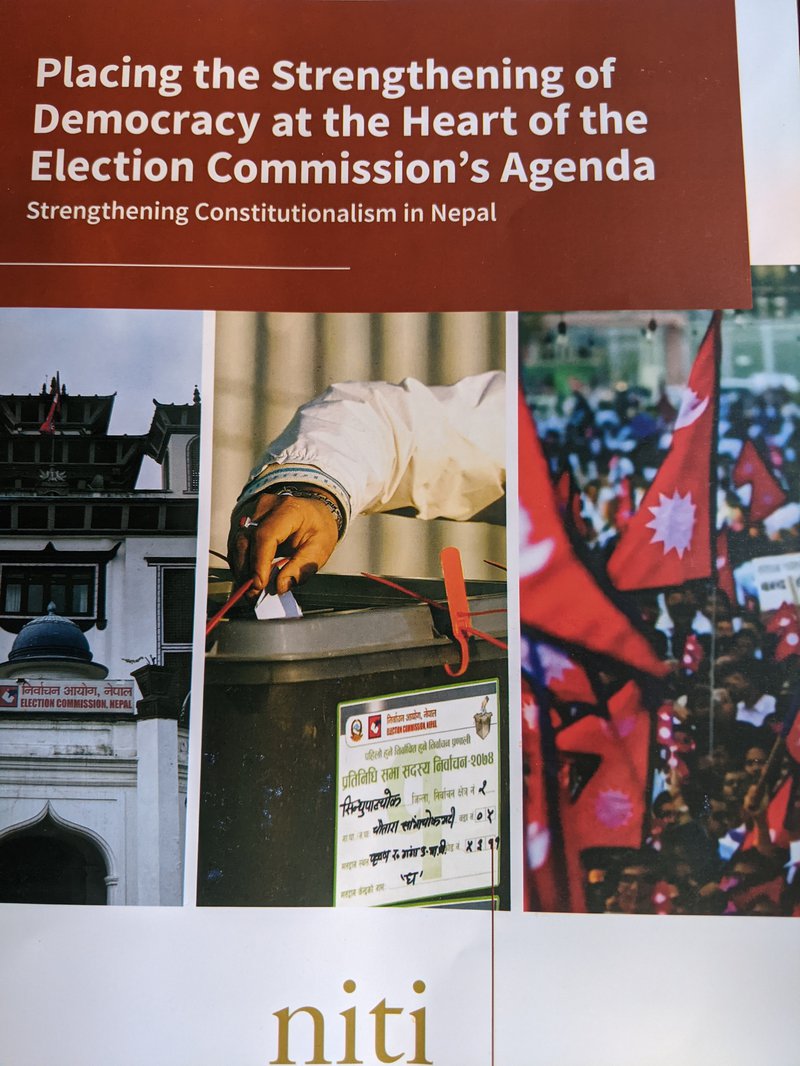
Looking to the past record of the Election Commission and political parties, stakeholders are demanding complete transparency in the campaign fund and expenditure of political parties.
According to the Constitution of Nepal, Elections Commission is the sole body responsible to regulate and monitor the political parties. Fulfilling its role, Elections Commission has already announced the code of conduct, mandatory showing of the expenditure for each candidate at the local level.

Keshab Poudel
Poudel is the editor of New Spotlight Magazine.
- HELVETAS NEPAL’S RIVERBED FARMING: Shift From Overseas To Local Farming
- Jul 26, 2024
- POLITICAL SCENARIO : K.P. Sharma Oli's Resurgence
- Jul 21, 2024
- UNDP/MinErgy: An Inventive Approach To Clean Brick Kiln
- Jul 19, 2024
- HELVETAS NEPAL: Nutrition Through Riverbed Farming
- Jul 18, 2024
- NOU Opens To All: Dr. Shilu Manandhar Bajracharya, Vice Chancellor
- Jul 15, 2024

